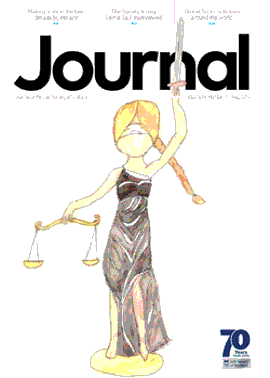Debtor discharge: the letter of the law
The discharge of a debtor under the Bankruptcy (Scotland) Acts discharges the debtor from liability for debts due as at the date of sequestration. However, it does not bring the sequestration itself to an end.
Since April 2015, the decision on whether to grant or defer a debtor’s discharge under the Acts has rested with the Accountant in Bankruptcy (“AIB”).
Upon the AIB making a decision about discharge at first instance, certain parties have the right under the legislation to request a review of that decision. That review is undertaken by a different team within the AIB’s office. If parties remain dissatisfied with the AIB’s decision following review, there is a right of appeal to the sheriff.
But what is the difference between a “review” and an “appeal”? What can be done if the AIB’s review reaches a different conclusion from the decision at first instance, without having seen any additional evidence or representations?
Challenging the AIB’s decision
This was the issue considered in the appeal Reid (Taylor’s Trustee) v Accountant in Bankruptcy [2019] SC ABE 52 (29 May 2019, published on Scottish Courts’ website, 17 June 2019).
Under the Bankruptcy (Scotland) Act 2016, the current process is that the AIB may grant a certificate of discharge in relation to a debtor at any time after the 12-month anniversary of the award of sequestration. In doing so, the AIB must consider a report issued by the trustee that contains certain prescribed information.
In this case, the trustee had recommended that the debtor not be discharged. Reasons given by the trustee included:
- assets had gone missing. The explanation for their loss did not satisfy the trustee;
- multiple reports of potentially criminal activity had not yet been dealt with;
- the trustee believed an examination of the debtor would be required. Discharge might hamper that process.
The AIB’s position
At first instance the AIB refused the discharge. However, the debtor exercised her right to seek a review and though little, if any, new evidence was provided, following review the discharge was granted.
The AIB set out in a letter its reasons for reversing the original decision. That letter examined the factors which the AIB is obliged to consider. It confirmed that the AIB considered that full and fair surrender of the estate had been made by the debtor. There was no suggestion that the debtor had not co-operated with the trustee, or that the trustee was unable to carry out their functions. It was not denied that assets were missing but the AIB accepted the explanation given by the debtor.
In relation to the private examination, the AIB noted that there was nothing in the Act requiring a debtor to be undischarged for such an examination to take place.
The AIB did note that the debtor remained a director of a limited company, contravening her statement of undertakings. However, the AIB accepted that the debtor was not in fact acting as director. Consequently, she was simply directed to apply to be removed immediately as a named director of the business.
The sheriff’s decision
Under the 2016 Act, appeal against a decision of the AIB following review is to the sheriff by summary application. The trustee and a creditor each appealed. Under the Act such an appeal may be on a matter of fact, point of law or the merits.
The court identified that the grant of a discharge is a discretionary decision of the AIB. The sheriff was therefore acting as an appellate court in relation to a discretionary decision. As the sheriff summarised, “it is not for me to second guess the decision of the AIB or to carry out afresh the balancing act AIB is required to perform in the review process as though I was rehearing the case… unless I am satisfied that AIB has acted unlawfully, in which case I can consider the matter on the merits”.
However, when the AIB is carrying out a review, the AIB is not performing an appellate function. It is legitimate for the AIB to look at the material which was before the original decision-maker (and any new material) and reach a different decision. The function of a review was to consider matters ab initio. That differs from the function of the sheriff at appeal.
As a result, the appeal was refused. Notably, the court was unwilling to engage in a rehearing of the arguments, for it reasoned that the sheriff’s function was to consider whether there had been procedural errors, factual errors or unjustified conclusions. The sheriff concluded there had not been.
Regulars
Perspectives
Features
Briefings
- Corporate transparency and register reform
- Can we do it this way?
- Positive news, times two
- Sorted: the Planning Bill
- Debtor discharge: the letter of the law
- Structures allowance draft builds in improvements
- Age of the asylum seeker
- Scottish and English conveyancing: are the two compatible?
- Change? The basics still count






